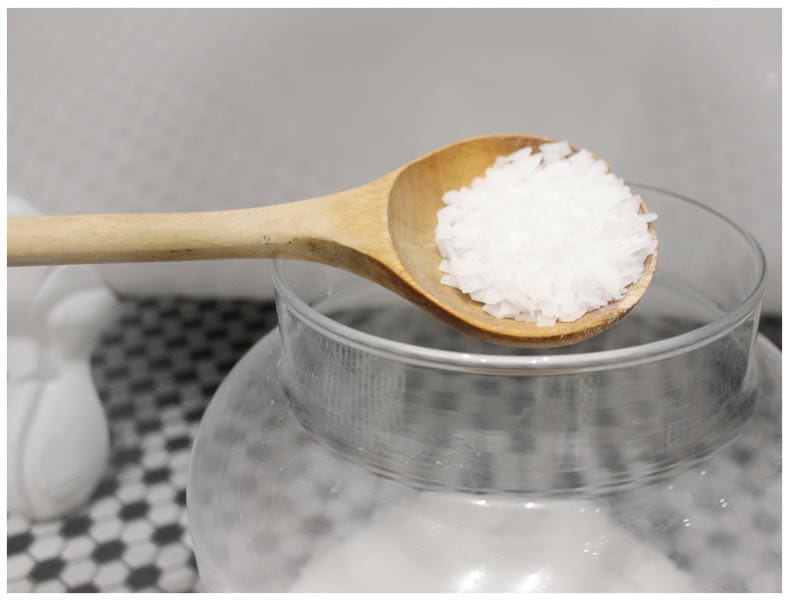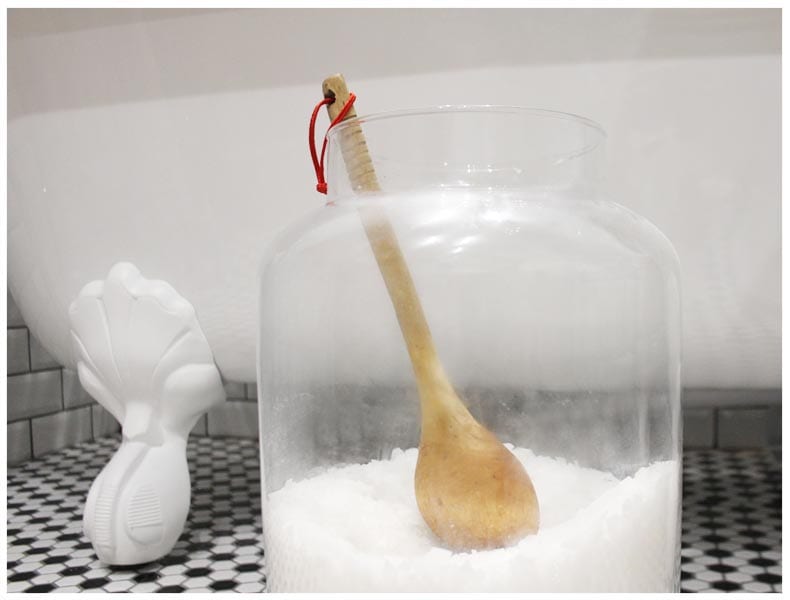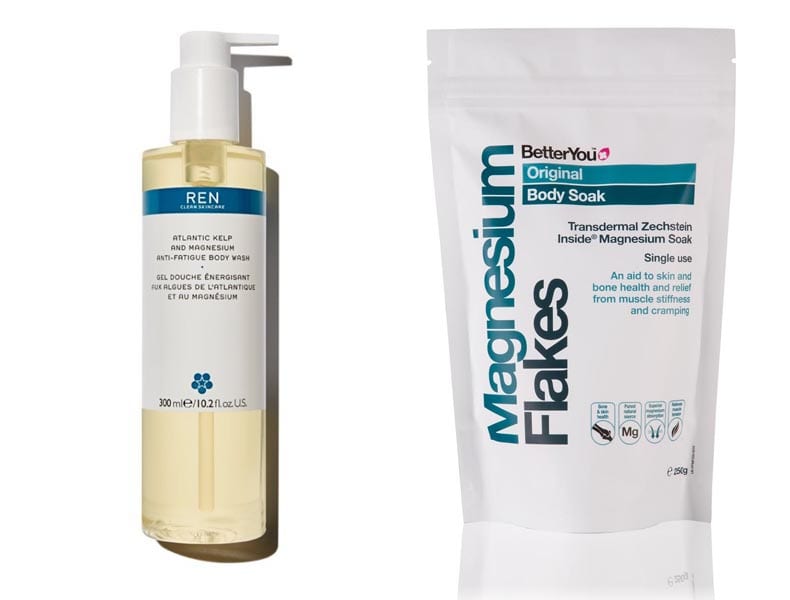Let’s discuss The Magnesium Miracle shall we?… I wanted to share with you something that I have been incorporating into my daily routine for the past year- Magnesium! I was first introduced to the importance of magnesium (and my lack of it) when I visited the Conscious Health Practice over in my hometown of Halifax, West Yorkshire (can’t recommend their practice enough- they truly changed the course of my health/ life) I like many others was suffering from fatigue and experienced some tingling in my toes and fingers, which can be a tell-tale sign of magnesium deficiency.
For the past few months I’ve been attending a Nutritional Healing Course with the Nutritional Healing Foundation. Attending the Nutritional Healing Foundation course has opened my eyes to lots of amazing information! I thought it might be quite nice to share with you some of the things I’m learning along my journey, some of the methods, recipes and techniques that can be easily introduced into your everyday! to kick off I wanted to share The Magnesium Miracle…
The Nutritional Healing Foundation course covers a wide range of naturopathy and nutritional elements such as vitamins, minerals, supplements, detox techniques, hydration, nutritious foods, with an in depth look into all these areas that make our bodies function healthily!

What is Magnesium?
Magnesium is a macro-mineral, which is needed by the body in large amounts. Calcium, sodium, and potassium are also macro-minerals. The average human body contains about 25 grams of magnesium, one of the six essential minerals that must be supplied in the diet.
Historically we would get Magnesium through whole food consumption as the soil in which fruit and veg was grown would have contained the minerals we needed, sadly with the modern diet of packaged convenience, mass-farming and non-organic growing, it is very easy for us to become deficient is Magnesium.
Magnesium Deficiency Symptoms:
Here are some of the other symptoms you might experience if you are lacking in magnesium:
- Anxiety and Panic attacks- Magnesium (Mg) normally keeps adrenal stress hormones under control.
- Asthma- Both histamine production and bronchial spasms increase with Mg deficiency.
- Blood clots- Mg has an important role to play in preventing blood clots and keeping the blood thin-much like aspirin but without the side effects.
- Bowel disease- Mg deficiency slows down the bowel causing constipation, which could lead to toxicity and malabsorption of nutrients, as well as colitis.
- Cystitis- Bladder spasms are worsened by Mg deficiency.
- Depression-Serotonin, which elevates moods, is dependent on Mg. A Mg-deficient brain is also more susceptible to allergens, foreign substances that can cause symptoms similar to mental illness.
- Detoxification- Mg is crucial for the removal of toxic substances and heavy metals such as aluminum and lead.
- Diabetes- Mg enhances insulin secretion, facilitating sugar metabolism. Without Mg insulin is not able to transfer glucose into cells. Glucose and insulin build up in the blood causing various types of tissue damage.
- Fatigue- Mg-deficient patients commonly experience fatigue because dozens of enzyme systems are under-functioning. An early symptom of Mg deficiency is frequently fatigue.
- Heart disease- Mg deficiency is common in people with heart disease. Mg is administered in hospitals for acute myocardial infarction and cardiac arrhythmia. Like any other muscle, the heart muscle requires Mg. Mg is also used to treat angina, or chest pain.
- Hypertension- With insufficient Mg, spasm of blood vessels and high cholesterol occur, both of which lead to blood pressure problems.
- Hypoglycemia- Mg keeps insulin under control; without Mg episodes of low blood sugar can result.
- Insomnia- Sleep-regulating melatonin production is disturbed without sufficient Mg.
- Kidney Disease- Mg deficiency contributes to atherosclerotic kidney failure. Mg deficiency creates abnormal lipid levels and worsening blood sugar control in kidney transplant patients.
- Liver Disease leading to liver failure- Mg deficiency commonly occurs during liver transplantation.
- Migraine- Serotonin balance is Mg-dependent. Deficiency of serotonin can result in migraine headaches and depression.
- Musculoskeletal conditions- Fibrositis, fibromyalgia, muscle spasms, eye twitches, cramps and chronic neck and back pain may be caused by Mg deficiency and can be relieved with Mg supplements.
- Nerve problems- Mg alleviates peripheral nerve disturbances throughout the whole body, such as migraines, muscle contractions, gastrointestinal spasms, and calf, foot and toe cramps. It is also used in treating central nervous symptoms of vertigo and confusion.
- Obstetrics and Gynecology- Mg prevents Premenstrual Syndrome; prevents dysmenorrhea (cramping pain during menses); is important in the treatment of infertility; and alleviates premature contractions, preeclampsia, and eclampsia in pregnancy. Intravenous Mg is given in obstetrical wards for pregnancy-induced hypertension and to lessen the risk of cerebral palsy and Sudden Infant Death Syndrome (SIDS). Mg should be a required supplement for pregnant mothers.
- Osteoporosis- Use of calcium with Vitamin D to enhance calcium absorption without a balancing amount of Mg causes further Mg deficiency, which triggers a cascade of events leading to bone loss.
- Raynaud’s Syndrome- Mg helps relax the spastic blood vessels that cause pain and numbness of the fingers.
- Cramps in pregnancy- Pregnant women may find that a bath with Epsom salt helps ease sore muscles and back pain. It’s often recommended to treat leg cramps, a common problem during pregnancy
- Tooth decay- Mg deficiency causes an unhealthy balance of phosphorus and calcium in saliva, which damages teeth.

How to get Magnesium:
There are several ways you can start to improve the levels of Magnesium in your body, thankfully most of them are very pleasant and the difference in the way you feel can be truly radical. Time to enjoy the Magnesium Miracle…
- Take a Magnesium-rich bath, use Magnesium Flakes or Magnesium Rich Epsom Salts. Dry brush your skin with a dry brush before you get in the bath. Add 2-3 cups of Magnesium flakes or Epsom salts to your bath water and get in for a soak (the dry brush takes off the dead skin and will help you to absorb more of the magnesium through your skin)
- Apply Magnesium oil to you inside leg or inside arm for quicker absorption. You may find it tingles at first if you are deficient, however after a few applications the tingling will stop.
- Magnesium Body Butter
- Eat Magnesium rich organic whole foods such as dark leafy greens, squash and pumpkin seeds, Beans and lentils, Lima beans, Whole grains, brown rice, Fish such as mackerel, Nuts, almonds, brazil nuts, Avocado, Bananas
- Try juicing your dark leafy greens
- Or use magnesium supplements, be sure to use ‘food standard’ supplements as they can be absorbed by the body.
- Use body washes rich in Magnesium such as those form REN

My experience:
I have been dry brushing my skin and taking a magnesium-rich bath every other day with a cup or two of Magnesium flakes, this ritual has meant I’ve felt much less fatigue, been sleeping really well and my skin feels a lot softer. After a 20-30minute soak in a Magnesium bath I feel so incredibly relaxed, I’ve found I have much less muscle tension and the tingling feeling I had hasn’t reoccurred. I’ve now got to the stage where I actually look forward to having an indulgent magnesium bath in the evening before bed and can really tell the difference when I don’t get chance to soak in Magnesium.
I’m hoping to share with you my ongoing Nutritional Healing learnings and hope to in some small way inspire and inform with lots of little practical tips that can be incorporated into your everyday!
Stay fabulous
Christine
For more information on Magnesium head over to Dr. Carolyn Dean’s website. Some material in this post was excerpted from Dean, Carolyn. The Miracle of Magnesium (2003 Ballantine Books: New York, NY), 2003. pp. 5-7.
Disclaimer: I am not a qualified Nutritional Healing Practitioner or Doctor, all information contained in this post is shared to inform, inspire and educate. Magnesium supplements can interact with different drugs, so it is best to check with a doctor before taking them.





Leave a Reply